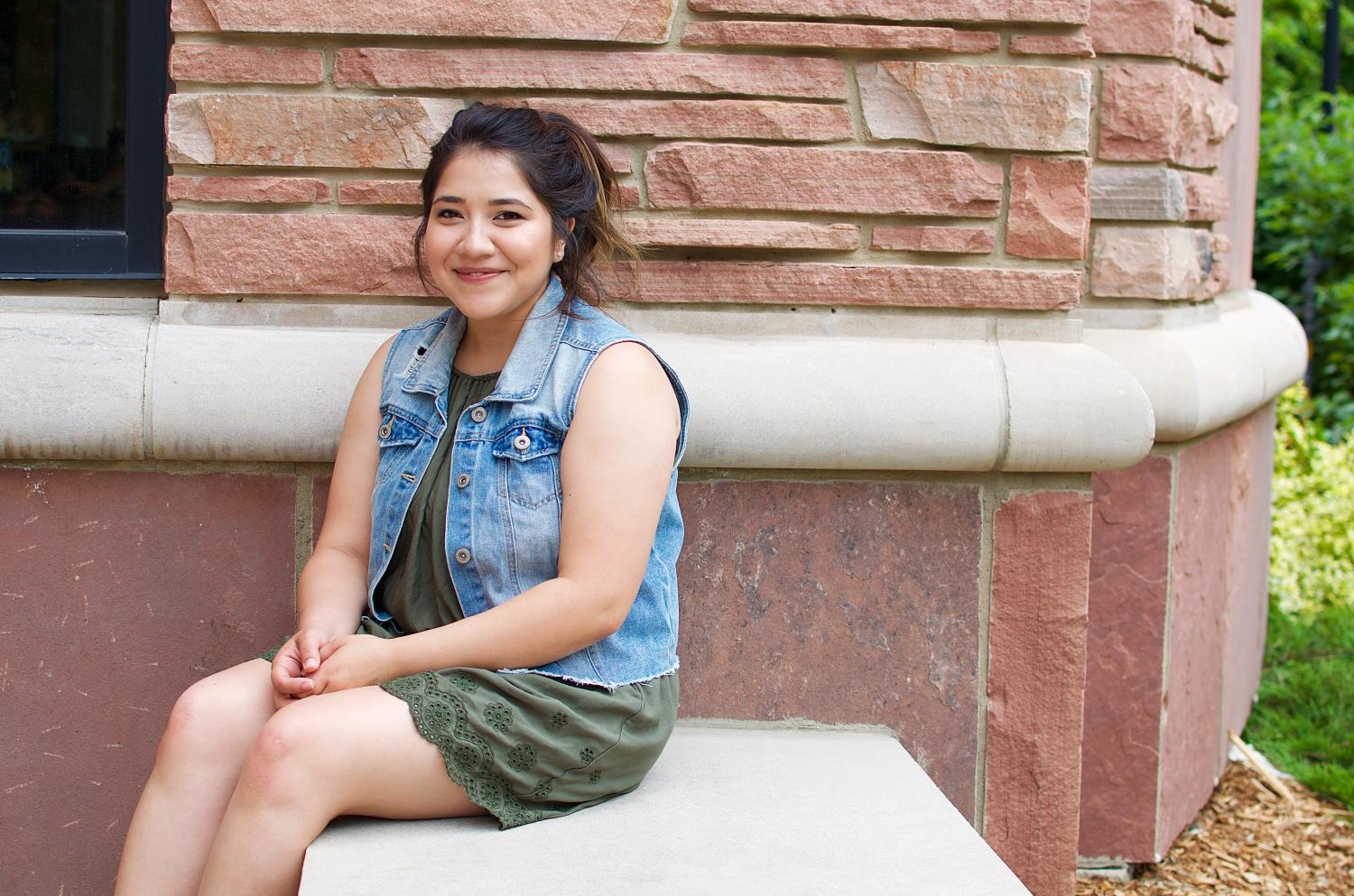First gen student, Puksta Scholar helps families navigate road to college
Alondra Palomino didn’t know if she would ever go to college. The daughter of Mexican immigrants, Palomino’s family was supportive of her academic pursuits but, like many immigrant families, lacked familiarity with the U.S. college system and knowledge about the college application process.
“Parents are supposed to be the people to guide you,” she explained. “But for me, this was really hard.”
Raised by her godparents in Thornton, Palomino maintained a close relationship with her siblings and mom in Aurora. Her mom valued education for her daughter, but had stopped her own schooling after seventh grade and wasn’t sure how to help her daughter make attending college a reality. Her godparents were also supportive and motivating, but they, too, lacked the information needed to guide Palomino toward her college dreams.
Fortunately for Palomino, who is now a Puksta Scholar and junior majoring in integrative physiology, she joined the Students of Academic Rigor (SOAR) program at Horizon High school in Thornton that helped her figure out what she needed to do to be the first in her family to attend college. As part of the SOAR program and in collaboration with CU Boulder’s Pre-Collegiate Development Program -- an academic enhancement program designed to motivate and prepare first generation middle and high school students to pursue their higher education goals -- Palomino came to CU Boulder for five weeks when she was in high school, staying in the dorms and taking classes.
"I had a lot of support from the SOAR program and peer mentors,” she said. "But kids who don’t have a program like this don’t know what to do."
Finding her passion
Nationwide, far fewer Latinos receive bachelor's degrees than students of other racial and ethnic groups. The Pew Research Center reports that 24 percent of all youths in Colorado aged 16 to 25 are Latino, most born in the United States. However, while nearly all Latino youth and older adults agree that a college degree is important for getting ahead in life just under half of Latinos aged 18 to 25 say they plan to get a college degree.
Palomino is committed to changing that.
There are many reasons why Latinos might not be applying to four-year colleges and universities. But in Palomino's experience as a first generation college student, one key factor stands out: Latino parents need more information. As a Puksta Scholar, a program of CU Engage that provides funding and support to students so they can tackle multi-year public service projects, Palomino is working to inform Latino parents in Colorado about how to support their kids in getting into college.
"At first, I wanted to reach undocumented students here at CU,” she said. "But once I started looking into the experience (of first generation and undocumented students), I decided to start doing parent workshops focused on the basics of college - what parents need to know about college applications, financial aid, applying for loans, the difference between subsidized and unsubsidized loans, the index score. I started teaching them things like how, to get into CU, a student needs three consecutive years of a second language. These are things parents should know but might not know."
Palomino said that doing the parent workshops "pushed me out of my shell and got me to be better at public speaking."
"It was good for me,” she said. “They asked me when I was having other workshops."
She gave her first parent workshop in Aurora in the fall of 2015. Her mom, who volunteers with Aurora West College Academy, helped her publicize the workshop via word of mouth.
What parents want to know
Palomino said questions from parents related to the cost of college are the most common. When she shows the slide about the cost of attending a Colorado university, parents “freak out,” she said. But Palomino tries to calm their fears by breaking down the different ways that people pay for college, discussing financial aid options, scholarships and loans.
“Most of the questions are about the cost, and also about things like whether or not students have to live in the dorms or if they can live somewhere else less expensive."
Her goal is to find a way to make the parent workshops a self-sustaining CU Boulder program before she graduates. She and her Puksta Scholar partner Emma Piller are thinking through the best ways to create a new student group on campus. Ideally, the group would be comprised of mostly immigrant and first generation students, where the students would train each other on how to deliver the parent workshops and figure out how to move this program and other related work forward.
"I want to get parents excited for their students’ futures, so they can help them to keep going.”



